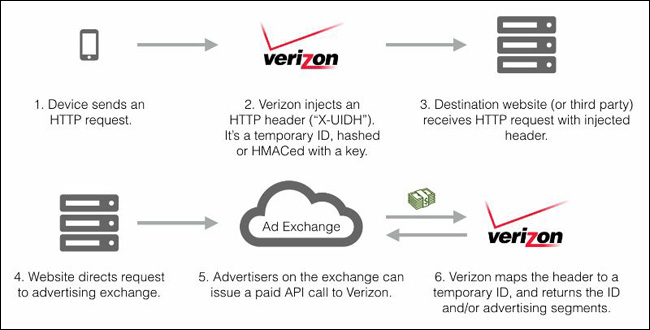What ISP (Internet Service Provider) knows about you?
As you know, ISP (Internet Service Provider) is an Internet service provider specializing in providing global networking solutions for organizations or individual users. Currently, ISPs can make money from your online activities. So where do they make money and how? The following article will answer that question.
- Access websites blocked by ISP
What can your ISP see?
Unencrypted sites provide ISPs (Internet service providers) with the most detailed data pieces about their users. These websites use hypertext transfer protocol (HTTP) without the SSL (Secure Sockets Layer) standard, leaving an unencrypted connection. Encrypted sites using HTTPS protocol work with SSL. Thus, your ISP can see all the data from unencrypted websites and some data from encrypted sites.
Data from unencrypted websites : ISPs will see the URL (Universal Resource Locator) of all the pages their users access on unencrypted websites. Former adviser to Tom Wheeler, FCC chairman, Gigi Sohn, said: "ISPs have access to all the activities you do online."
According to Mr. Sohn, the ISP knows every website you visit, the time you visit those sites, your location and the device you are using. Of the top 50 news, shopping and health websites, more than 42 pages are unencrypted. More than 85% of these 50 websites include Target.com, WebMD, Huffington Post, IKEA and many other websites.
Data from encrypted websites : Half of the websites are using HTTPS to reduce the amount of information that ISPs access from their users. When users access encrypted pages, the ISP cannot access the full URL and content from the pages users visit.

However, the ISP still knows which website you are visiting even if they do not know what you are doing on it. This information is still useful for them. Knowing the website you are using helps them guess your interests, estimate your age, Internet usage habits, online time, offline and more.
Dallas Harris said: The fact that you're visiting a website may reveal that you're at home or outside. Harris said: The level of information that ISPs find goes far beyond what users think.
ISPs can freely view and track user data
The abolition of ISP privacy rules in the United States has opened the door to many scary data collection methods of these network providers. Be aware that ISPs have a long history of violating user privacy. Here are some methods that ISPs use:
Get information through your traffic and insert ads: ISPs use your browsing history to serve ads. Firms like AT&T, Charter and CMA said they had done such things before. According to the Public Bar Association (EFF), the abolition of FCC privacy rules allows Internet service providers to have a legal basis to sell your traffic.
Selling user data for marketers and advertisers: AdvertisingAge says, Consumer Insight 365 - a service provided by SAP regularly updates data representing about 300 mobile phone events every day. 20 to 25 million mobile subscribers.
ISPs reported using 'supercookies' to track their users. EFF said: Initially, there was no way for customers to turn off this feature. It does not matter if you are browsing in Private Browsing mode, using a tracker-blocker (tracking feature). Verizon ignores these and inserts a unique name on all your unencrypted traffic.

Also according to the EFF, in 2011, some ISPs were caught using Paxfire's service to attack users' search queries to Bing, Yahoo !, Google and other search engines. ISPs use this to drive traffic to specific websites and can make a profit from these.
ISPs also use Carrier IQ to monitor application usage and visited websites of users. Trevor Eckhart of EFF has conducted research to reveal how Carrier IQ works.
Although Carrier IQ has led to a class action earlier, the abolition of FCC privacy rules will encourage (even legalize) ISPs to use such tracking software.
So how to be safe when operating online?
Since ISPs use tracking and information gathering technology, it is better to use secure connections such as Tor or VPN or virtual private network to hide your identity and limit the number of information that ISP finds.
You should read it
- ★ 5 ways to check who is following you online
- ★ Facebook and Snapchat are still silently tracking iPhone users even when App Tracking Transparency is turned on
- ★ Tips for keeping your data safe online
- ★ Firefox will slow down the process of loading user tracking scripts
- ★ Google was fined $ 17 million for tracking users on Safari